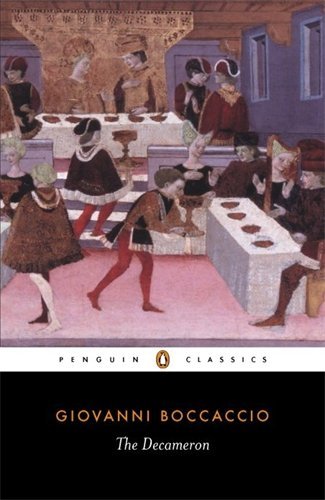The Decameron Book Summary
TL;DR
The Decameron, authored by Giovanni Boccaccio, is a collection of one hundred tales narrated by ten noble young men and women seeking refuge from the Black Death, exploring themes of love, fortune, and human resilience.
What is The Decameron about
Written around 1351, The Decameron unfolds during the backdrop of the Black Death, showcasing a series of stories told by a group of nobles who retreat to a villa outside Florence. With Boccaccio's masterful storytelling, the work presents a vivid tapestry of life, revealing the complexities of human emotions and societal dynamics. The tales traverse various themes, primarily focusing on the enduring power of love in the face of adversity, and highlight the human capacity to navigate and often exploit fortune. Boccaccio’s innovative literary style blends romance and realism, setting the stage for later developments in Western literature.
Top The Decameron Quotes
- "Love is the ultimate force that binds us, transcending all boundaries and intellect."
- "In times of plague, laughter and storytelling become the greatest acts of rebellion against despair."
- "Fortune is a fickle mistress, but in her unpredictability lies the essence of the human experience."
Who should read The Decameron?
The Decameron is ideal for readers interested in classical literature, exploring themes of love, society, and human resilience. Those seeking insights into medieval life and the evolution of narrative form will find Boccaccio's work enlightening and entertaining.
The Decameron Best Reviews
- "A vivid portrayal of human resilience and the transformative power of love, The Decameron remains a cornerstone of literary exploration and human emotion." - Literary Review
- "Boccaccio's masterful storytelling technique and rich characterizations make The Decameron an enduring classic of Italian literature." - The New York Times Book Review
People also liked these summaries
The Decameron FAQs
What are the main themes explored in The Decameron?
The Decameron primarily explores themes of love, fortune, and human resilience, presenting a complex portrait of individuals navigating life's challenges, particularly in the context of the Black Death.
Why has The Decameron faced censorship?
The Decameron has faced censorship due to its candid exploration of love and sexuality, leading to bans by religious authorities and social critiques, especially during the 15th century.
Who is the intended audience for The Decameron?
Boccaccio wrote The Decameron for a diverse audience, including noble ladies, and intended to engage readers through its entertaining stories and poignant reflections on love and society.
